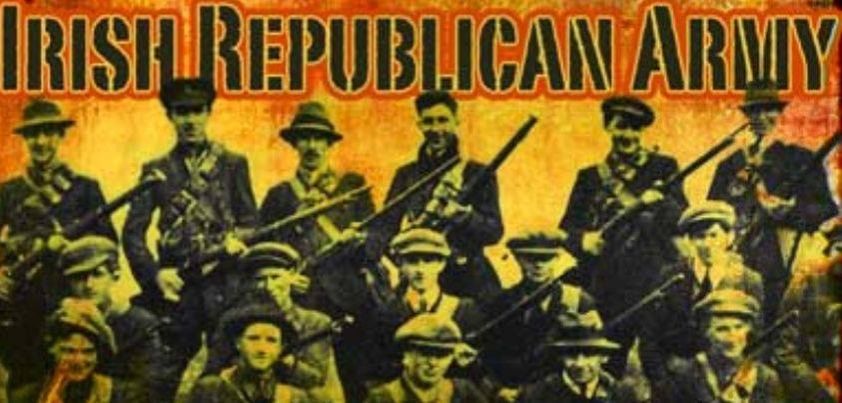 This story by Frank O’Connor takes place during, or possibly shortly after, the Irish War of Independence of 1919-1921. Two young Irishmen become friends with two English ‘prisoners’ they are guarding. That is until a cold-hearted officer orders them to take part in the execution of the two men. As one notes at the end of the story: And anything that happened to me afterwards, I never felt the same about again. Themes: friendship, religion vs. atheism, choices and consequences, aspects of war (duty vs. morality, brutality, the humanity of enemy combatants, possible long-term psychological effects).
This story by Frank O’Connor takes place during, or possibly shortly after, the Irish War of Independence of 1919-1921. Two young Irishmen become friends with two English ‘prisoners’ they are guarding. That is until a cold-hearted officer orders them to take part in the execution of the two men. As one notes at the end of the story: And anything that happened to me afterwards, I never felt the same about again. Themes: friendship, religion vs. atheism, choices and consequences, aspects of war (duty vs. morality, brutality, the humanity of enemy combatants, possible long-term psychological effects).
Guests of the Nation Text / PDF (4,600 words)
There are several examples of irony in the story, none more so than the title. Belcher and Hawkins are initially introduced as prisoners who are allowed to move about the farmhouse freely… just like they were guests. What the two men and their guards don’t know is they are actually hostages being held for a far more deadly purpose. And although one presumes that their summary execution is carried out at the direction of and for the supposed benefit of the “Nation”, I can see no indication of this. It is unlikely that the Republican Army high command would have issued the order so quickly after the British execution of the Irish prisoners. Moreover, no evidence is kept to show the British that the promised retribution has taken place. A more plausible explanation is that the killings were ordered in a fit of anger much further down the Irish chain of command. This could explain why the bodies are simply buried in a bog, out of sight forever.
One of the secrets to the success of this story is the way that O’Conner, in addition to building his main characters, compares and contrasts them. In so doing he highlights the humanity on both sides of the conflict. Bonaparte and Belcher are both quiet and reserved; Noble and Hawkins are argumentative, especially about religion. In one of Belcher’s favorite words, they are all “chums”.
An interesting question is why the author chose a variation of his birth name (Donovan vs. O’Donovan) for the cold-hearted officer who enforced the order to kill the prisoners. There is little evidence of humanity in Donovan. He is a sociopath, as evidenced in this chilling paragraph from the story:
We went round to the back of the house and down towards the bog. It was only then that Jeremiah Donovan told them. He was shaking with excitement.
Donovan exemplifies a common problem with volunteer armies around the world. Due to poor screening of new recruits, people like him all too often end up in command positions.
Video Version
This haunting 2012 video adaption of the story makes its position on the Irish War of Independence clear from the beginning:
“The Irish fought for a country free of British tyranny; British soldiers wanted to crush the rebellion and often attempted to do so with barbaric force.”
This war led to the separation of Northern Ireland (which remains part of the U.K.) and Southern Ireland (now the Republic of Ireland) through the Anglo-Irish Treaty of 1921. The film involves a possible setting shift. To emphasize the pointlessness of the executions, the film substitutes the prayers of Noble and the old woman at the end of the written story for news that the Treaty may already have been signed when the executions took place. It is possible that the written story is set in what is called the “guerrilla phase” of the war, between 1921 and 1923. During this period, many executions (by the British) and reprisals (by the IRA) took place. There is a possible time indicator in the old woman’s comments about “the drought”. The only officially recognized Irish drought between the end of World War 1 and the 1930s was from 1921 to 1923. O’Donovan (O’Connor) was known to be opposed to the Treaty and spent a year in prison between 1922 and 1923 because of this. Watch and enjoy!